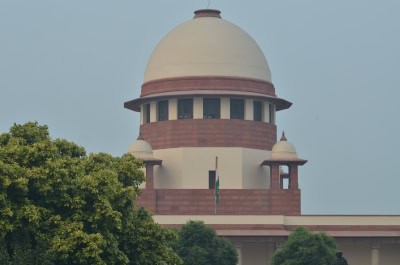New Delhi, Jan 19 : The Supreme Court on Tuesday upheld the constitutional validity of amendments to the Insolvency and Bankruptcy Code (IBC) in 2020, under which a minimum of 100 or 10 per cent of allottees of a housing project have to come together to file an application to initiate IBC proceedings against a defaulting developer.
A bench comprising Justices Rohinton Fali Nariman, K.M. Joseph and Navin Sinha held that Sections 3, 4 and 10 of the IBC Act, 2020 which introduced these amendments did not violate the right to equality under the Constitution. According to the earlier provisions, even a single allottee could initiate IBC proceedings against the developer.
The petitioners, many of whom were home buyers, argued that the law was created by way of pandering to the real estate lobby and succumbing to their pressure.
“Such an argument is nothing but a thinly disguised attempt at questioning the law of the Legislature based on malice. A law is made by a body of elected representatives of the people. When they act in their legislative capacity, what is being rolled out is ordinary law,” observed the top court in its 465-page verdict.
The petitioners have raised many practical difficulties in home buyers coming together to file a joint application against the corporate debtor.
The bench observed that insisting on a threshold on the categories of creditors would lead to indiscriminate litigation which would result in an uncontrollable docket explosion as far as the authorities which work the code are concerned.
“The debtor who is apparently stressed is relieved of the last straw on the camel’s back, as it were, by halting individual creditors whose views are not shared even by a reasonable number of its peers rushing in with applications,” it said.
The bench emphasised that the legislative policy reflects an attempt at shielding the corporate debtor from either frivolous or avoidable applications.
“All that the amendment is likely to ensure is that the filing of the application is preceded by a consensus at least by a minuscule percentage of similarly placed creditors that the time has come for undertaking a legal odyssey which is beset with perils for the applicants themselves apart from others,” it said.
The court stressed that it couldn’t have been intention of the legislature to create an obstacle in the path of the corporate debtor, in any of the circumstances contained in Section 11, from maximising its assets by trying to recover the liabilities due to it from others.
The top court said it upholds the impugned amendments, but however imposed three directions.
Disclaimer: This story is auto-generated from IANS service.

